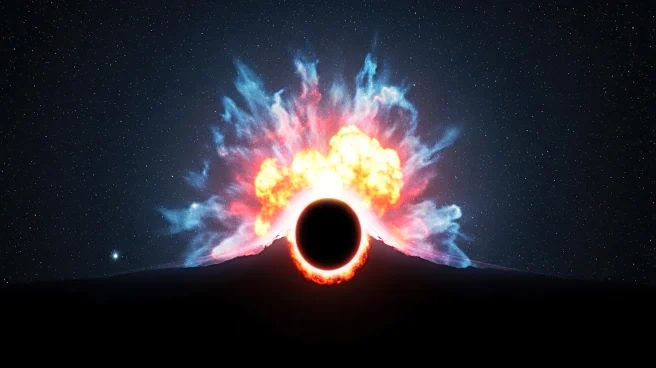What's Happening?
Physicists from UMass Amherst propose that primordial black holes, formed shortly after the Big Bang, may explode within the next decade. These hypothetical black holes are thought to have evaporated over time, leading to potential explosions. Observing such events could provide evidence for Hawking radiation and reveal secrets about the universe's composition, including dark matter particles. The team suggests a 90% chance of detecting gamma rays from an exploded primordial black hole, offering insights into subatomic particles and cosmic phenomena.
Why It's Important?
Detecting explosions from primordial black holes would validate theories about their existence and provide direct evidence of Hawking radiation. This discovery could revolutionize our understanding of the universe's early conditions and the nature of dark matter. The potential to observe these events highlights the importance of continued investment in astronomical research and technology, as it could lead to breakthroughs in particle physics and cosmology. Understanding primordial black holes may also offer insights into the formation of supermassive black holes and the evolution of galaxies.
What's Next?
Researchers will continue to explore methods for detecting gamma rays from primordial black hole explosions, using existing telescopes and developing new observational techniques. The scientific community may increase efforts to study Hawking radiation and its implications for black hole physics. If successful, these observations could lead to a reevaluation of existing theories and models, prompting further exploration of the universe's origins and the nature of dark matter.










